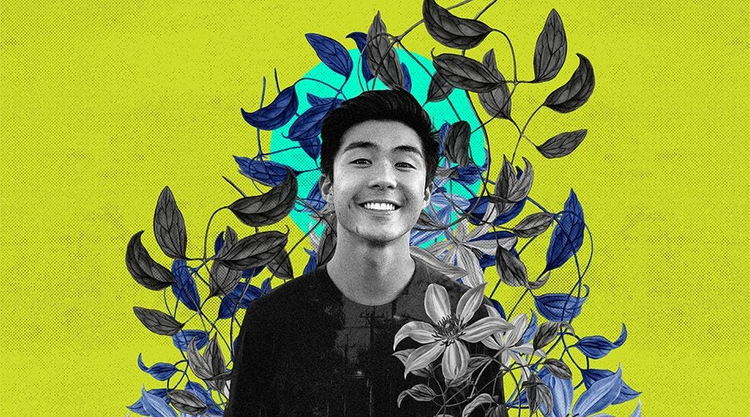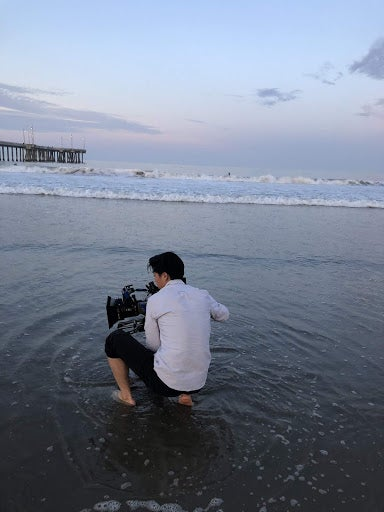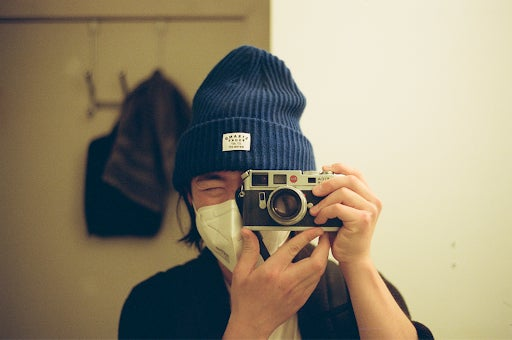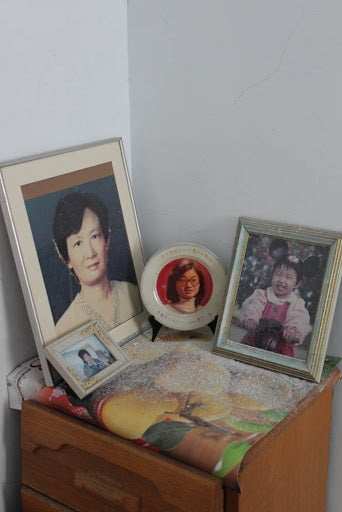Filmmaker Sean Wang finds power in personal stories
New Voices In film: Meet Sean Wang

Illustration by Natasha Cunningham.
Sean Wang is a filmmaker who hails from Fremont, CA. He is a graduate of USC’s School of Cinematic Arts, a Google Creative Lab 5 Alum, and a Sundance Ignite x Adobe Fellow. His work has reached millions of viewers online and has also aired on primetime television. Recently, Wang contributed sequences for the feature film, “Summertime”, which premiered at the 2020 Sundance Film Festival, and his short film, “3,000 Miles”, was selected as one of Vimeo’s 100 most iconic Staff Picks of the decade.
His film, “Still here”, is a documentary about the residents that refuse to move out of an abandoned village in southern Taiwan.
Adobe had the privilege of chatting with him about life, filmmaking and the importance of telling our stories.
Could you tell us about your background?
I am a Taiwanese-American filmmaker, a graduate of USC’s School of Cinematic Arts, a Google Creative 5 alum, and a 2020 Sundance Ignite x Adobe fellow. My parents are from Taiwan and came to America when they were 26. Eventually, they moved to the Bay Area and I was born and raised there, in Fremont, CA.

How did you get started in film?
When I was younger, I would spend a couple months of every summer vacation visiting relatives in Taiwan. I had an uncle there who loved movies. He transformed a room in his house into a small DIY movie theater lined with shelves full of movies of all different genres and my family and I would spend hours there in the evenings sometimes watching movies. That’s where I had some of my most formative movie-watching experiences and where I first fell in love with movies, but it didn’t make me want to become a filmmaker.
I didn’t even know I could be a filmmaker. I was a skater kid, who made little skate videos with my friends. And although I loved watching movies, I didn’t think I could make them. But, I would spend hours watching all kinds of skate videos every day — “real” ones and random ones on YouTube — and try to emulate their style in my videos. Around that same time, a video called Fully Flared was released. The intro to that video was unlike anything I had ever seen in a skate video. It was so cinematic, engaging, oddly emotional, and it was directed by Spike Jonze. It felt like watching a real movie, and afterwards I remember thinking, “I wanna do that.”
I spent a few years trying to do just that and made a bunch of videos that didn’t do just that. But when I learned that Spike Jonze, who I only knew as the guy who made my favorite skate videos, was also a film director, the limitation of possibilities I had unconsciously boxed myself completely evaporated. It never occurred to me that someone who made skate videos could also make movies — and music videos, and commercials, and Jackass, and plays, etc. It inspired me to think past just skateboarding and try my hand at telling stories that excited me. Cut to 10+ years later and here we are, on the Adobe blog.

What inspires you & your creativity?
I am inspired by my family — my friends — the Bay Area — Taiwanese breakfast — a good nap.

How do you seek inspiration?
I’ll try to make time to do things that are not explicitly film related. Lately I’ve been reading, skating, playing piano, eating socks, hiking, and hanging out with my grandmas. One of those is not true.
Do you have any advice for emerging filmmakers?
You will always feel fear and doubt with every project, especially when it’s personal to you, but if you can constantly remind yourself why an idea was exciting or important to you in the first place, jumping into uncertainty and chasing that feeling will always be worthwhile. Something special will come out of it, even if the final result isn’t exactly what you intended. And listen to Ira Glass.
Do you have a creative routine?
I make my bed every morning, drink coffee, and sometimes take naps.
Why is sharing your voice important?
I think storytelling, at its best, has the power to move us, challenge us, generate empathy, and inspire change — and I think sharing your voice is important because for so long, the vast majority of our stories have not been reflective of and/or shaped by the breadth of voices that make up our world. By sharing your voice and telling the stories that are personal and important to you, it can hopefully make the world feel a bit smaller and play a part in helping the stories that shape our culture better reflect our world.